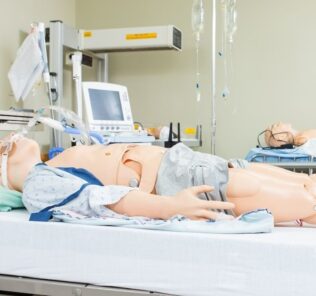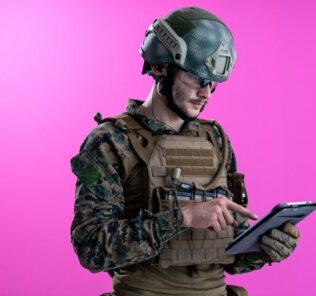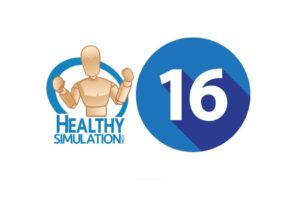Clinical Simulation Research Focus: Debriefing Faculty Aspects
The scientific support for healthcare simulation continues to grow and advance the science of clinical simulation. The incorporation of simulation research and evidence-based practice is imperative for the best outcomes for learners and simulationists. Healthcare Simulation Standards have been developed to guide simulation practice. Debriefing is often viewed as one of the most critical aspects of healthcare simulation and “where learning occurs.” According to the Healthcare Simulation Dictionary, one of the definitions is to conduct a session after a simulation event where educators/instructors/facilitators and learners re-examine the simulation experience for the purpose of moving toward assimilation and accommodation of learning to future situations. In other words, debriefing should foster the development of clinical judgment and critical thinking skills. This HealthySimulation.com article by Content Manager Teresa Gore, PhD, DNP, APRN, FNP-BC, CHSE-A, FSSH, FAAN, reviews published debriefing research related to faculty aspects with the word debriefing in the title published between January 1 to September 1, 2023.
Nyoni et al. (2023). Health sciences educator’s simulation debriefing practice needs: A mixed methods study. Journal of Education and Health Promotion, 12 : Simulation debriefing influences learning from healthcare simulation activities. Health sciences educators must be competent in conducting simulation debriefing for healthcare students. A structured faculty development intervention for health sciences educators must be informed by educator needs to enhance its utility. This paper describes the needs of health sciences educators regarding simulation debriefing at a faculty of health sciences. A parallel convergent mixed methods study design was applied on a selected population of 30 health sciences educators at the University (x) who integrate immersive simulation for first- to final-year students in their undergraduate programs.
The Objective Structured Assessment of Debriefing tool underpinned observations which informed the quantitative strand of the study, while semi-structured interviews were conducted as part of the qualitative strand. Descriptive statistics and thematic analysis were used to analyze the data. Health sciences educators struggled to establish the learning environment for simulation (median 1), facilitate learning (median 3), and evaluate their debriefing activities. However, they were able to apply an appropriate approach toward simulation (median 4). They identified the need to be educated on the fundamentals of simulation-based education. A continuing professional development program must be developed aimed at transforming approaches toward facilitating learning, explaining the fundamentals of simulation-based education, modeling of best-practices related to debriefing, and applying appropriate strategies for evaluating debriefing activities.
Sponsored Content:
Meshel et al. (2023). Debriefing Gold: Harnessing the Power of Debriefing Data to Inform Education. Western Journal of Emergency Medicine, 24(1), 94 : Debriefing is a critical element in healthcare, both in the clinical environment and in the simulation lab. Often, what is said at a debriefing is not recorded, leading to loss of critical data that could be used to inform future simulations, education, and systems improvement. In this perspective piece, we explain the powerful role that capturing debriefing data can have for identifying themes to improve learners’ knowledge and skills, as well as inform data-driven systems change and initiatives.
Woda et al. (2023). Early Evidence for Using a Train-the-Trainer Program to Teach Debriefing for Meaningful Learning. Clinical Simulation in Nursing, 83, 101447 : Competent debriefers are essential to promote positive learner outcomes. While important, providing training to faculty may be difficult. The Train-The-Trainer (TTT) model is a successful approach for efficiently training large groups of individuals. This study used a purposive, descriptive research design to test the feasibility and effectiveness of a TTT program for teaching debriefers how to implement and train others to use Debriefing for Meaningful Learning (DML). With training, assessment, and individualized feedback, trainers and trainees alike improved their ability to use DML, as well as self-assess their debriefing. The TTT program was a successful, feasible, cost-effective way to provide DML training.
Yu et al. (2023). A survey of debriefing best practice standards implementation and training priorities in nursing simulation educators. Collegian, 30(2), 367-372 : There is a lack of research that identifies the status of implementing the debriefing best practice standards and training needs to enhance debriefer competency. This study aimed to identify the status of debriefing best practice standards implementation and training priorities in nursing simulation educators using importance-performance analysis. This was a cross-sectional descriptive survey with a convenience sample of 143 Korean nursing simulation educators. Collected data included perceived importance and self-assessed performance of debriefing best practice standards implementation and debriefer competency.
The overall self-assessed performance score was significantly lower than the overall perceived importance of debriefing best practice standards implementation. There were significant positive correlations between Debriefing Assessment for Simulation in Healthcare rubric and importance-performance. The need for debriefer skills development had the highest training demand. An assessment of the perception of debriefing practice can be used to inform future debriefer competency development training programs by identifying areas of improvement according to debriefers. There are differences between self-rated competency in debriefing and the importance. There is a need for professional development to achieve optimal debriefer competency. Further study is needed to identify the effects of a debriefer skills development program on debriefer competency and learner outcomes.
Sponsored Content:
View the HealthySimulation.com LEARN CE/CME Platform Webinar Healthcare Simulation Debriefing Strategies & Courses from Top Experts at The Debriefing Academy to learn more!
To remain current in best healthcare simulation practices, simulationists must read and evaluate the literature and research published. This clinical simulation literature review on debriefing regarding faculty aspects is part of a series to focus on published research in healthcare simulation for 2023. Highlights from the National Council of Boards of Nursing (NCSBN) Simulation Guidelines (2016) for pre-licensure nursing programs states:
- Lead faculty and sim lab personnel are qualified to conduct simulation, faculty are prepared to lead simulations
- Faculty are prepared by following the INACSL Standards of Best Practice: Simulation (now Healthcare Simulation Standards of Best Practice)
- Faculty are prepared to use facilitation methods congruent with simulation objectives/expected outcomes.
- The program utilizes a standardized method of debriefing observed simulation using a Socratic methodology.
Learn More About Top Healthcare Simulation Debriefing Webinars!
Teresa Gore, PhD, DNP, APRN, FNP-BC, CHSE-A, FSSH, FAAN – Dr. Gore has experience in educating future nurses in the undergraduate and graduate nursing programs. Dr. Gore has a PhD in Adult Education, a DNP as a family nurse practitioner, and a certificate in Simulation Education. Dr. Gore is an innovative, compassionate educator and an expert in the field of healthcare simulation. In 2007l Teresa started her journey in healthcare simulation. She is involved in INACSL and SSH. She is a Past-President of INACSL and is a Certified Healthcare Simulation Educator Advanced (CHSE-A). In 2018, she was inducted as a Fellow in the American Academy of Nursing (FAAN). In 2021, she was inducted as a Fellow in the Society of Simulation in Healthcare Academy (FSSH) and selected as a Visionary Leader University of Alabama at Birmingham School of Nursing Alumni. During her career, Dr. Gore has led in the development and integration of simulation into all undergraduate clinical courses and started an OSCE program for APRN students. Her research interests and scholarly work focus on simulation, online course development and faculty development. She has numerous invited presentations nationally and internationally on simulation topics.
Sponsored Content:


















